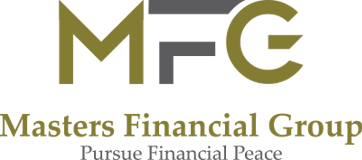Retirement is a time when many investors shift their focus from accumulating wealth to preserving and generating income from their existing assets. As an investor nearing retirement, there are several key considerations to keep in mind to ensure a successful transition into retirement.
Here are the five most important things an investor within five years of retirement should consider:
- Review your retirement plan: Do you have a retirement plan? Think about this plan like a roadmap you might use to drive on vacation (before phones with GPS). A retirement roadmap would review your and provide clarity in regards to your investments, savings, income and expenses. This will help you create a budget and determine how much you’ll need to save to maintain your standard of living in retirement.
- Rebalance your portfolio: As you approach retirement, it’s important to review your portfolio and ensure that it’s properly allocated to match your risk tolerance and investment goals. You may want to shift some of your investments from stocks to bonds, which tend to be less volatile, to protect your portfolio from market fluctuations. Another idea is to determine how much cash (or cash like) investments you should have available. If the markets turn down the cash will allow you to maintain your lifestyle without the need to liquidate your investments in a down market.
- Review your Social Security options: It’s important to understand your Social Security options and the best time to start taking benefits. The age at which you start taking benefits will have a significant impact on the amount of money you receive, so it’s important to consider your options carefully.
- Retire with no debt: It does not take a millions of dollars to fund retirement if you are debt free (including your mortgage). Debt is like any other trap, easy enough to get into, but hard enough to get out of. Being debt-free means less stress, better cognitive function, fewer illness, and improved relationships. All of which becomes more important in retirement. Retiring with debt is often considered a cardinal financial sin: Every dollar you owe reduces your income in retirement.
- Create a plan for healthcare costs: Healthcare costs can be a significant expense in retirement, so it’s important to plan for them. Medicare provides for a large % of medical costs in retirement (80%). A healthy 65 year old retiring in 2022 can expect about $137,000 in healthcare costs during retirement. If Medicare covers 80% of that figure ($100,000) leaving $37,000 to be paid out of pocket. Remember, Medicare does not cover long term care expenses. Consider purchasing long-term care insurance, or setting aside money in a designated investment account to help cover these expenses.
In conclusion, as an investor nearing retirement, it’s essential to review your plan, rebalance your portfolio, review your Social Security options, work to get debt-free and create a plan for healthcare costs. By taking these steps, you can help ensure that you’re well-prepared for the transition into retirement, and that you’ll be able to maintain your standard of living during your golden years. If you would like a personal Retirement Readiness Roadmap for yourself please call us (864) 862-9269 or email me [email protected] to schedule a free consultation to discuss the steps you need to take to be ready for retirement.

Dave Conley, CFP

